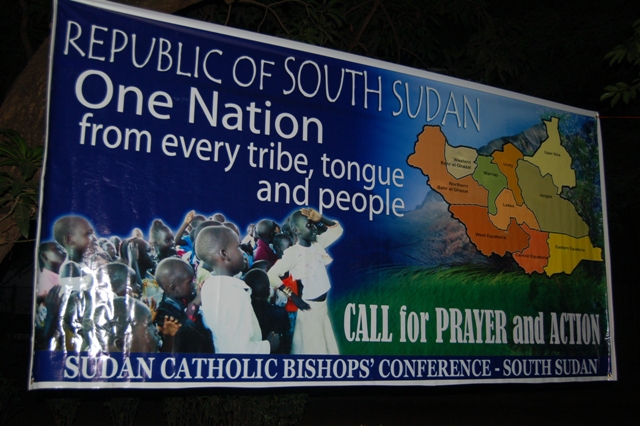
By Faith J. H. McDonnell (@Cuchulain09)
It is the morning of July 4 in Virginia as I write, America’s Independence Day. But in South Sudan the fourth day of the National Prayer for Reconciliation is coming to a close. South Sudan will celebrate its own independence on Tuesday, July 9. The National Prayer for Reconciliation is an effort to ensure that the baby nation grows well and strong and prosperous.
In the working paper of the Committee for National Healing, Peace, and Reconciliation, the Most Rev. Daniel Deng Bul, the Archbishop of Sudan and South Sudan (Episcopal Church of Sudan) outlines the values that will guide the way to reconciliation of the various people groups in South Sudan. The core values that foster healing, peace, and reconciliation are pluralism, inclusivity, peacemaking, social justice, forgiveness, healing, atonement, and sovereignty. Here is a closer look at the first four, and during Day 5 the last four will be explored:
- Pluralism – the working paper explains that “pluralism means that we seek unity in the midst of diversity.” South Sudan has learned the value of pluralism the hard way, by being under the oppression of the Islamist regime in Sudan which respects neither religious, ethnic, nor racial diversity. “Ethnic and cultural diversity should be seen as a gift from God: to be a blessing, to be part of the richness of human experience, and to be celebrated,” explains the working paper. It warns, however, that “we must be honest in saying that diversity has its limits, which must be defined by every society in terms of the range of tolerable deviation from the norm.”
- Inclusivity – with wisdom derived from a Biblical understanding of justice and compassion, the Archbishop’s working paper explains, “Compassionate inclusion means that we seek to overcome hostility by the practice of unconditional love toward others, including one’s enemies.” It adds that “compassionate inclusion requires a willingness on our part to confront our own hostility toward “the other.””
- Peacemaking – The paper says that “communities and nations are made-up of weak, fallible, broken human beings, who have an inherent tendency toward conflict.” This is part of our human nature and therefore it is assumed that conflict is “an ever-present reality.” Rather than ask how to avoid conflict, we should ask how to resolve conflict without violence.
- Social Justice – The working paper defines faith-based social justice as seeking “the common good through transformation of the soul of a community.” It continues to explain that social justice is inherently tied to issues of privilege, land, and economics. “Faith-based social justice means that there is a moral grain to the universe established by God which governs human relationships and structures,” the paper says.
Please pray that as the many people groups of South Sudan wrestle with this critical issue of nation-wide healing and reconciliation that they will embrace these values and make South Sudan a shining example of reconciliation to the whole world.
No comments yet



